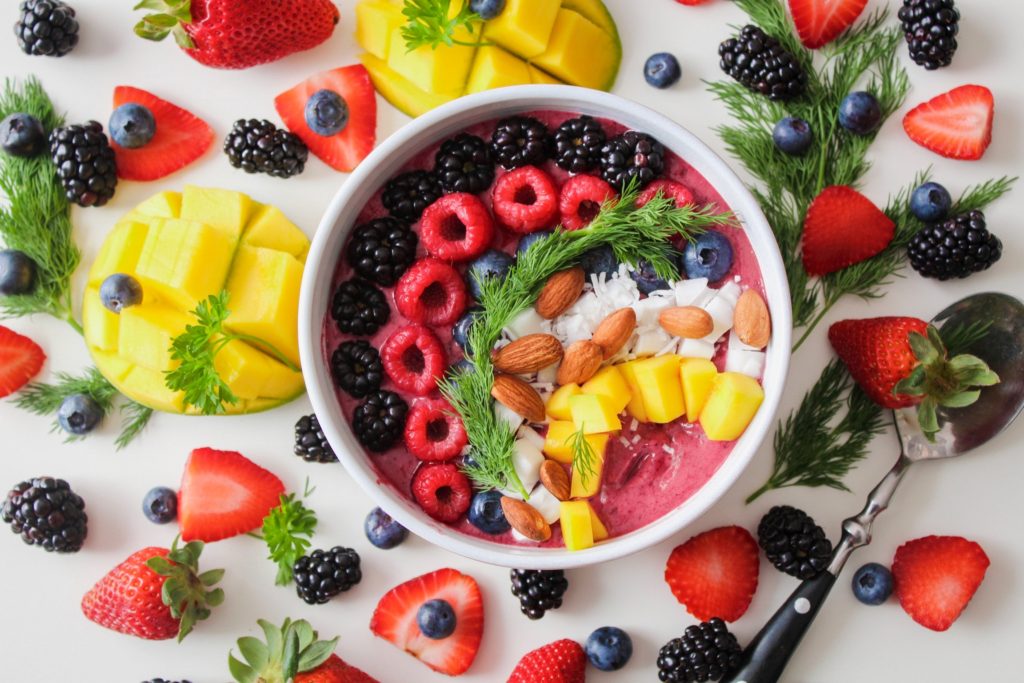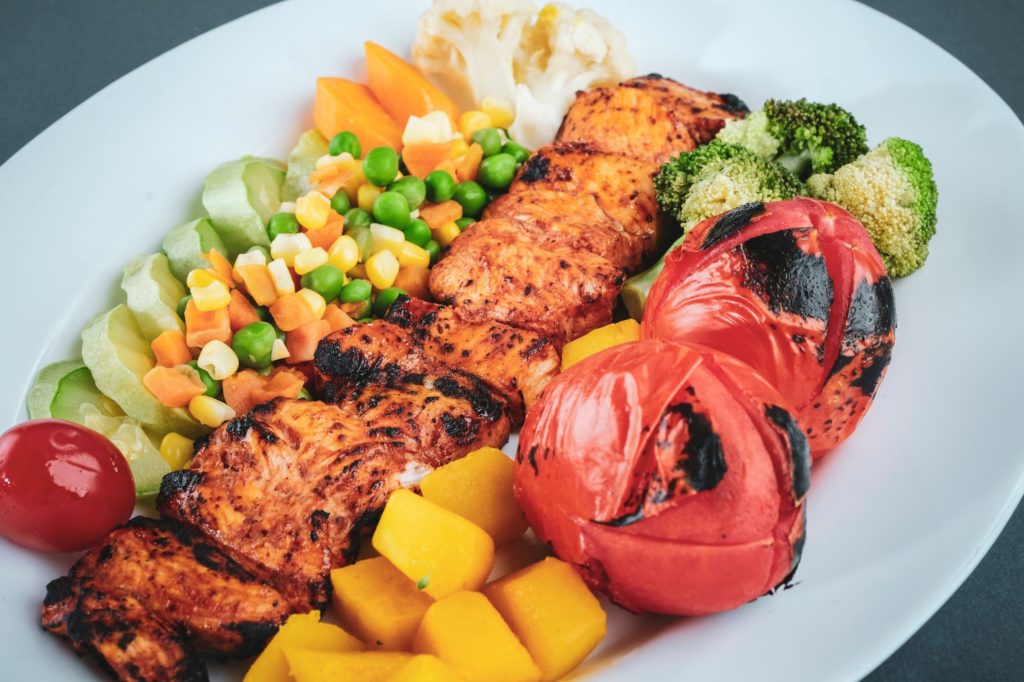
7 food habits that keep you full of energy the whole day
1.Eating Raw foods instead of snacks

Most conventional snacks are made with processed, refined, nutritionally empty ingredients with a sprinkling of preservatives and synthetic flavourings with a heavy complement of white sugar and sodium. Yes, consuming them will indeed give you a real, albeit temporary, energy lift when you need it most.
Refined ingredients, stripped of their former life-giving elements, they will cause your blood sugar to spike. Within an hour or so, the opposite happens: your blood sugar plummets, and low blood sugar means low energy and a hankering for even more junk.
By consistently consuming these types of snack foods, day in and day out, you may have unknowingly jumped into an unhealthy eating cycle replete with unstable energy, a raging appetite, poor health and mood, and a less-than-radiant appearance.
Raw foods are created from whole foods consisting of unprocessed proteins, essential fats, and complex carbohydrates that digest slowly and feed your body with sustained vitamin-and mineral.
These Raw foods retain their naturally occurring enzymes, which typically make them easier on the digestive system than cooked foods. Raw snacks meet your body’s nutrient quota, trigger your natural appetite-regulating hormones, and won’t leave you wanting more.
2.Enjoy a variety of food i.e. Balanced diet

Nutrients and food chemicals do not exist in isolation and are not consumed that way. There is more to an orange than vitamin C, and more to meat than protein. Each food is greater than the sum of its components because the chemicals in food interact with each other and with the chemicals in other foods eaten at the same time.
Although some popular diet books have spread the myth that certain foods shouldn’t be eaten in combination, the truth is that the nutritional quality of a meal is often improved by mixing and matching foods. For example, the iron in cereal foods is better absorbed in the presence of vitamin C, making a glass of orange juice a clever accompaniment to your breakfast cereal.
We tend to take an overly simplistic view of the food we eat, focusing on one or two nutrients, such as iron, cholesterol or sugar. One side-effect of this habit is that we pin labels on food—for example, we might believe that yoghurt is ‘good’ for us while chocolate is ‘bad’. In fact, it’s the way we use food that determines whether it’s a good or bad choice in assisting us to meet our specific nutrition goals. This depends on what we are trying to achieve and what else we eat over the course of the day.
3.Eat the right type and amount of fats and oils

Nutrition guidelines recommend that total average fat intake be reduced by a quarter, to less than 30 per cent of total energy. But guidelines for a lower average fat intake were never meant to promote a ‘no-fat’ intake.
Fats and oils are widely distributed in foods and have many benefits. They provide a concentrated source of energy, and they make meals tasty, satisfying and rich in texture. They also supply essential fatty acids and fat-soluble vitamins, which are important to health. We need a minimum of 20–40 g (1–2 tablespoons) of the right fats each day to get enough of these nutrients.
Nutrition guidelines target not just the total amount of fat in our diets, but also the types of fats and oils we eat. Depending on their chemical structure, different fats have different effects on your weight, on how well your body responds to insulin, and on blood fat and cholesterol levels.
In nutshell, having energy whole day it becomes important that intake of the right quantity and type Fat and Oil is important.
Please read more on fats and oils in the link.
4.Eat the right amount of nutrient-dense carbohydrate foods
Nutritional guidelines promote a higher carbohydrate intake in terms of wholesome, fibre- and nutrient-rich foods for having a better quality of carbohydrates. Most of the food we eat contains carbohydrates. They include sugar and starches, which provide our body with energy, and fibre, which is vital for a healthy digestive system.
A LOW-CARB DIET MAY LEAD TO MOOD SWINGS AS CARBS HELP THE BRAIN MAKE A CHEMICAL THAT STABILIZES MOODS
| Good Carbohydrates for whole day energy | Not so Good Carbohydrates |
| Unrefined starches These are found in foods including whole-grain breads, cereals, and beans. They are broken down slowly, releasing energy over a long period of time. They are also a good source of fibre, vitamins, and minerals. Example :Whole grains ,Beans and Legumes. | Refined starches Only the simpler, more easily digested starches are found in refined carbohydrates such as white flour and white rice. They break down easily in the body, giving a quick energy rush, but don’t keep you full for long. Examples :White rice ,Cakes ,White bread etc. |
| Milk and natural sugars Natural sugars are found in milk products, fruit, and some vegetables. The fibre in some of these foods ensures that the sugar is absorbed at a gradual rate. | Free sugars These can be added to food as refined table sugar, but are naturally present in honey, syrups, and fruit juices. These provide lots of “empty calories” and it is easy to eat too much of them. |
5.Replace your daily fluid losses by drinking water for energy

Up to 60 per cent of our body weight is water and it is needed to keep our organs functioning. While we can live without food for several weeks, without water, death occurs in days, showing just how important it is.
Getting enough water keeps our skin plump and elastic, helps regulate body temperature, and ensures our kidneys filter out waste.
If more water is lost than taken in, symptoms of light-headedness and tiredness can start within hours. Thirst is the body trying to correct the problem before it becomes severe. In extreme cases, dehydration causes fits, brain damage, and death.
How much I need: The amount of water you need varies depending on the climate and what you spend your time doing. Eight glasses per day (300 Ml) is frequently advised for moderately active people in temperate climates, but this includes fluid from other drinks and food. For young, healthy people, the best thing to do is to listen to your body and drink when you feel thirsty! However, elderly people can become dehydrated without feeling thirsty, and so must watch their water intake.
6.Using alcohol sensibly

The immediate effects of drinking alcohol include dilation of blood vessels (vasodilation) and depression of the central nervous system. As a result, you will feel a little flushed (losing more heat through your skin) and your sensitivity will be dulled. So while you may think you are giving a great performance, coordination and vision will be impaired.
The severity of these effects will depend on how much alcohol you drink and on your individual tolerance (note that females tend to have poorer tolerance). However, most people will experience the initial effect after consuming 20–30 g of alcohol.
Alcohol does not help with fluid replacement—in fact, it acts as a diuretic and may reduce the rate at which you are rehydrating.
Alcohol is not sweated out or exercised off. It is a drug that, at high levels, causes damage to many organs and tissues in your body. The only way to prevent this from happening is not to drink to excess.
Alcohol can be a small part of a healthy diet. A drink after a hard work can help you relax, and a few drinks can add sparkle to social occasions.
7.Sleeping right for great energy and good eating habits

Sleep deprivation can inhibit our ability to full energy – even if we exercise regularly and eat healthily –increasing our risk of obesity, diabetes and cancer. This is because sleep deprivation affects the levels of the hormones that regulate our appetites and consequently our food choices.
Recent studies suggest that people who are sleep-deprived feel hungrier and crave food they don’t need, especially refined carbohydrates and fats, making them more likely to gain weight and feeling drained of energy. It is known that we consume fewer calories when we get good-quality sleep, helping us to maintain a healthy weight and we are full of energy the whole day.